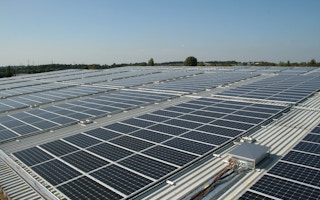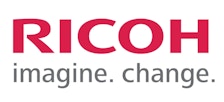From electric corporate fleets and rooftop solar to energy-efficient buildings and renewable energy certificates, there are opportunities aplenty for businesses to decarbonise their operations.
However, even the most progressive companies will find that shrinking their climate footprint is easier said than done. Where charging points aren’t available, companies can have a hard time switching to electric mobility. Co-working spaces can make sourcing renewable power difficult.
Space constraints can shatter dreams of producing one’s own power, and if the hands of firms are tied by burdensome government regulations, there is little they can do, is there? Even if companies can utilise electricity generated onsite, how expensive is it, really?
Corporates need not despair. Policies, practices and tools that can help firms along their bumpy journey towards climate neutrality are out there—they only have yet to be shared widely among stakeholders.
That’s why this year’s Ricoh Eco Action Day Panel will bring together leaders in government, business and civil society for a panel discussion to explore how companies can remove roadblocks to decarbonisation and leverage the opportunities available as they buckle up for the race to net zero.
Taking place on 2 June 2020, the dialogue session will delve into the business models at companies’ disposal to make the switch to green power and electrify transport fleets. It will also explore how firms can ramp up energy efficiency, and whether carbon offsetting can be a cop-out.
“
We hope that this discussion will help corporations seek viable ways to reduce their carbon emissions and switch to renewables, and that the insights gained will be useful for government officials in policymaking.
J.D. Kasamoto, general manager, service & environment division, Ricoh Asia Pacific
“Based on the theme “the race to net zero”, the dialogue has three key goals: discuss opportunities and challenges in corporate decarbonisation, identify ways to communicate the need for corporate decarbonisation, and explore regulations that prevent or accelerate the adoption of green technologies,” said J.D. Kasamoto, general manager of the service & environment division at Ricoh Asia Pacific.
Kasamato said the dialogue’s focus on affordable and clean energy was in support of Singapore’s plans to increase solar power use, halve its peak emissions by 2050 and phase out fossil fuel vehicles within two decades.
Cutting corporate carbon
The event comes at a time when pressure is mounting on companies over their contributions to global warming. Corporates that keep operating at the expense of people and the planet in the coming decades risk going out of business, new research shows.
As such, more than 200 firms that have joined RE100, a global club of companies committed to powering their entire operations with renewables, are rising to the challenge, underscoring the momentum that corporate climate initiatives have gained worldwide.
Among them is Ricoh, which was the first Japanese company to join the initiative in 2017. Beyond its efforts to create a circular economy, Ricoh aims to curb greenhouse gas emissions by 63 per cent by 2030, based on 2015 levels, shared Kasamoto.
All of Ricoh’s manufacturing sites in Thailand, Japan and China that assemble its printers have switched to renewable power last year. So have its offices in Singapore, which, in addition, use LED lighting and motion sensors to conserve energy, he said.
“
There can’t be successful business in a world ravaged by climate change.
Wander Meijer, director, GlobeScan
“Climate change is being seen by consumers, governments and non-governmental organisations as one of the biggest issues of our time. If, as a company, you want to be trusted by your stakeholders, you need to help tackle it,” said Wander Meijer, director at research consultancy GlobeScan.
Beyond the peril of damaging their brand’s image, companies that fail to act on climate change risk disruptions to their business operations, with erratic weather patterns and water scarcity threatening to wreak havoc on supply chains, he told Eco-Business.
“There can’t be successful business in a world ravaged by climate change,” said Meijer.
Ricoh Eco Action Day is Singapore’s largest and longest-running business-led environmental initiative held in celebration of the United Nations Environment Programme’s World Environment Day (WED) every year. It is observed by calling on organisations and individuals to pledge positive action for the environment in the city-state.
“Having championed sustainability for many years, Ricoh understands that tackling climate change is a collective effort at all levels of society—from national to individual levels. We need robust regulatory frameworks to support green initiatives, and to foster partnerships between the private and public sector for this cause,” said Ricoh’s Kasamoto.
“Therefore, we have been actively involving various corporate leaders, governmental bodies and academic experts in dialogues since our first panel discussion in 2014. We started our first roundtable in 2017 and have been holding it annually ever since,” he continued.
The format of this year’s panel will depend on Covid-19 measures determined by the Singaporean government. It will likely be an entirely virtual event, or a small physical event hosted at Ricoh’s offices where the dialogue will be livestreamed online.
Kasamoto said he hoped the dialogue would produce tangible and long-lasting outcomes, such as new commitments to reducing carbon emissions or increasing the use of renewables and other green technologies.
“When everyone comes together, we can truly make a difference,” he said.









